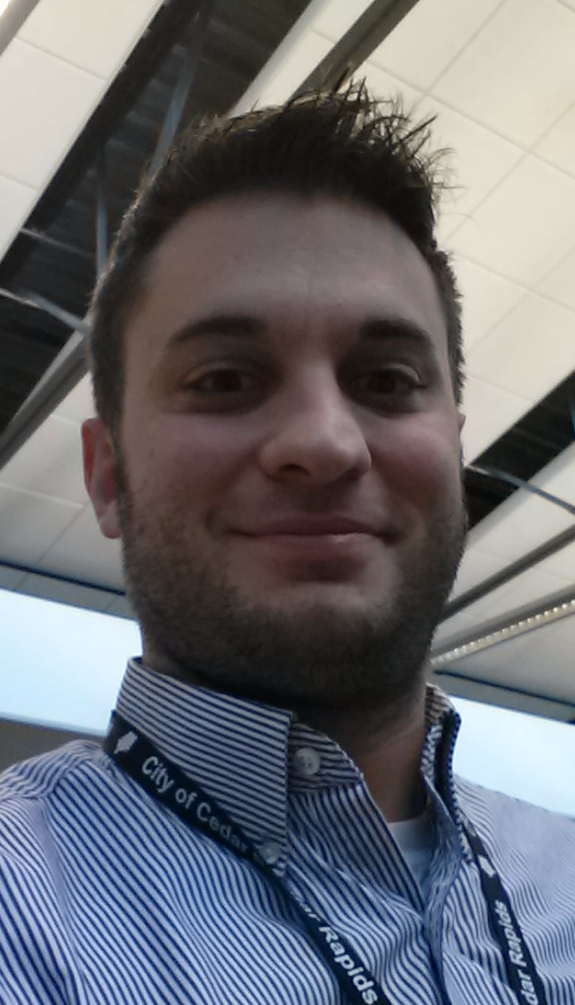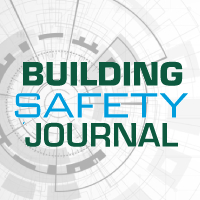
Master Code Professional Lucas Pump
Lucas Pump achieves the Master Code Professional designation, the gold standard of code certification

![]() It’s considered the Ph.D. of building safety codes certification. The Master Code Professional (MCP) is the highest level of designation the International Code Council offers and is the “gold standard” for demonstrating proficiency in the code profession. The Code Council has certified thousands of individuals, but only a small select number have attained this high level of achievement: just over 800 MCP professionals worldwide. Their achievements are a benefit to the code enforcement profession as well as their communities.
It’s considered the Ph.D. of building safety codes certification. The Master Code Professional (MCP) is the highest level of designation the International Code Council offers and is the “gold standard” for demonstrating proficiency in the code profession. The Code Council has certified thousands of individuals, but only a small select number have attained this high level of achievement: just over 800 MCP professionals worldwide. Their achievements are a benefit to the code enforcement profession as well as their communities.
To obtain this level of certification requires and demonstrates a commitment to the profession, diverse knowledge of codes and a high level of self-initiative. Lucas Pump is the latest to join the elite group of Master Code Professionals. In this exclusive feature for the Building Safety Journal, we asked Lucas to share his experience on obtaining the MCP designation, highlights of his professional career and any insights or advice he has concerning the industry.
Lucas Pump
Building Inspector
Building Services Department
Cedar Rapids, Iowa, United States
International Code Council member for 12 years
BSJ: What led you to pursue and obtain MCP certification?
Pump: I started as an inspector in the public sector when I was 28 years old, so obtaining multiple certifications was an avenue I wanted to pursue to gain respect and recognition from contractors and co-workers. Then, once I received all of the residential and commercial trades certifications, I started to feel a sense of pride and the MCP designation was obtainable.
BSJ: How did you study and prepare for the many exams you took as a part of your MCP designation?
Pump: I would try to carve out about an hour of my workday to study. I found that my attention span for scanning the codebooks was about an hour, and if I tried to study longer, I wouldn’t retain the knowledge.
BSJ: What does achieving the prestigious MCP status mean to you?
Pump: It has given me a great sense of accomplishment – like running through the finish line at a marathon!
BSJ: How would you describe the value or benefits that have come with the recognition of your MCP status?
Pump: It adds value for my employer and my city because our building department participates in the ISO rating program. So, part of the ISO rating is based on inspector certifications.
BSJ: What advice would you offer to those who are considering pursuing an MCP designation?
Pump: My advice would be to attend training seminars as often as possible, and make sure you sign-up for subject matters that you aren’t comfortable with or don’t know that much about. Doing this will encourage you to dive into codebooks that you normally don’t use. This will diversify your knowledge base and make testing for the certifications that much easier.
BSJ: How long have you been in the industry?
Pump: Twelve years.
BSJ: What major changes have you seen?
Pump: Digital inspections and use of other digital formats. The use of Facetime, Teams, and Zoom has really exploded over the last several years and has its pros and cons.
BSJ: What excites you about the future of your industry?
Pump: The fact that ICC’s family of codes and standards is so widely accepted because of its rigor. I have had the pleasure of working on a couple of code development committees, and the process only gets better every cycle.
BSJ: What is one piece of advice that you would give to those starting out in the industry?
Pump: Get involved! Join a regional ICC chapter, attend code hearings, attend training seminars, and submit a code change!
BSJ: Building safety is the focal point of our mission here at the Code Council. What is the importance of building safety to you? How has ICC helped you in your career and commitment to public safety?
Pump: Building safety is absolutely important, and ICC has helped by creating a platform for certifications through its amazing Assessment Center. This allows inspectors to accomplish our certification goals, which ultimately improves our industry.
BSJ: Obtaining all those ICC certifications is quite an accomplishment. What are you going to do now that you have achieved this goal?
Pump: I am currently working on the creation of ICC CLA (Credential of Learning Achievement) for code officer safety. My goal will continue to stay engaged with the code community and serve on committees.
BSJ: Thank you, Lucas, and congratulations. You have definitely been an encouragement to us all in your pursuit of excellence.
To earn the Code Council’s elite MCP designation, a candidate must first pass 10 core Code Council exams plus a number of elective Code Council exams. Typical Master Code Professionals hold 17 or more Code Council certifications. The Master Code Professional designation requires certified individuals to complete an additional 60 hours of Continuing Education Units every three years to maintain active status.
“The Master Code Professional certification is the pinnacle of all Code Council certifications, representing a level of effort, knowledge, and dedication that elevates not only the individual achieving it but the code official profession as a whole,” said Code Council Chief Executive Officer Dominic Sims, CBO.
Master Code Professionals are typically responsible for all technical and management aspects of code enforcement with duties that range from the management of a code enforcement department to the supervision of inspectors and plan reviewers.
“Congratulations to Lucas on achieving this important and significant accomplishment,” said Autumn Saylor, Director of the Code Council’s Assessment Center. “I challenge and encourage all code professionals to strive for this level of achievement, and look forward to congratulating more Master Code Professionals in the future.”
To learn more on how you can join this elite group and let us help you open the door to increased professional challenges and career advancement, click here.








